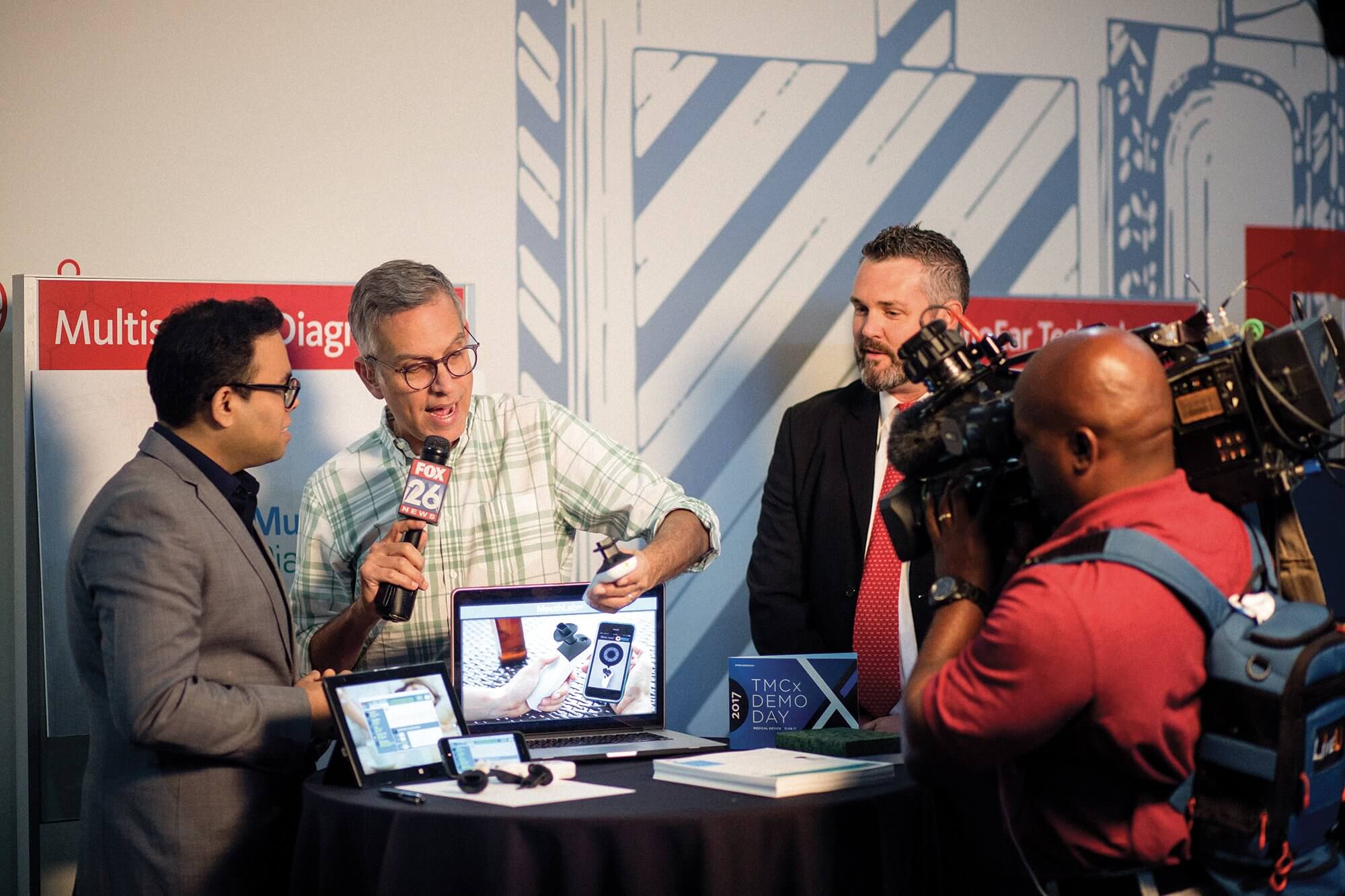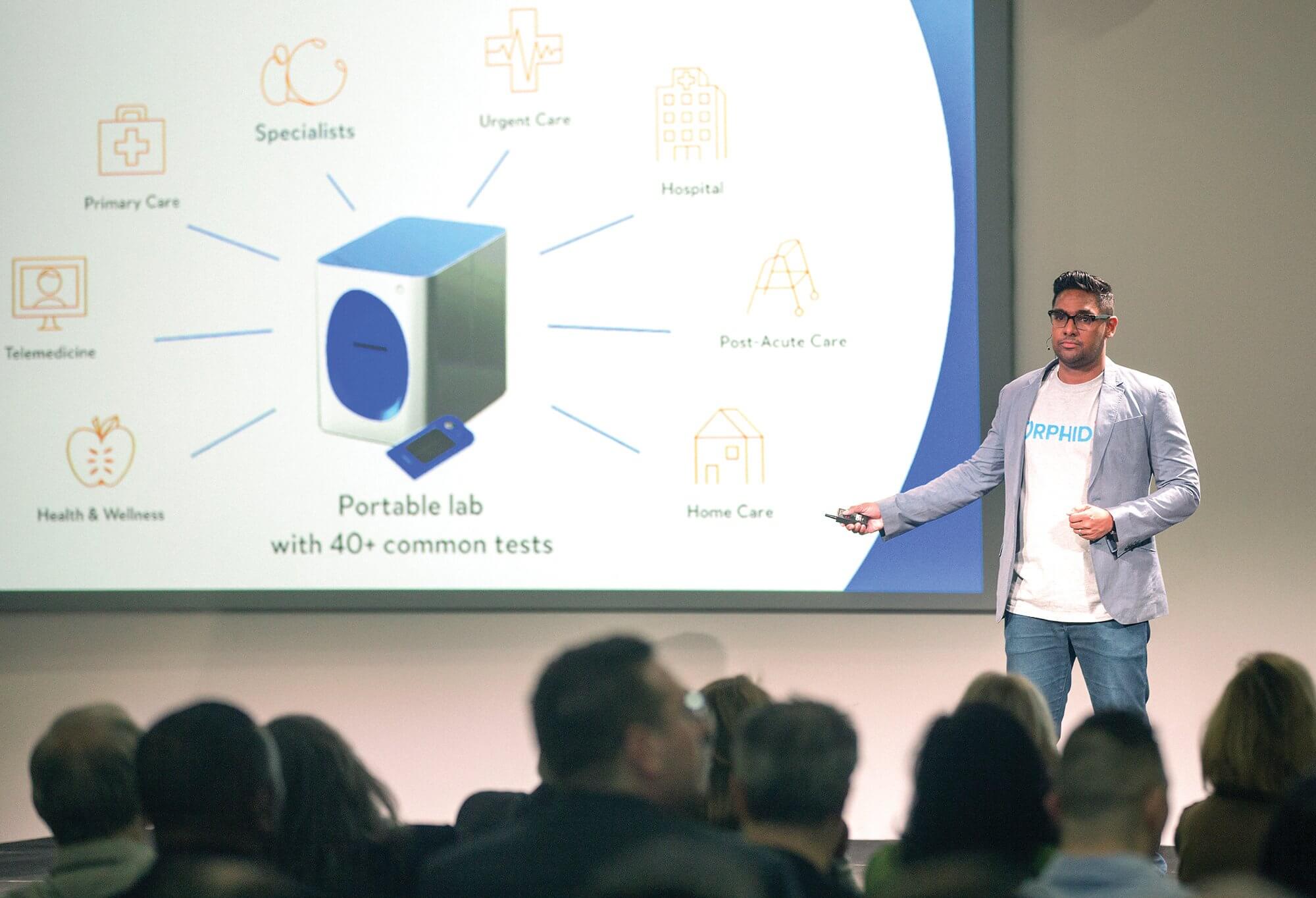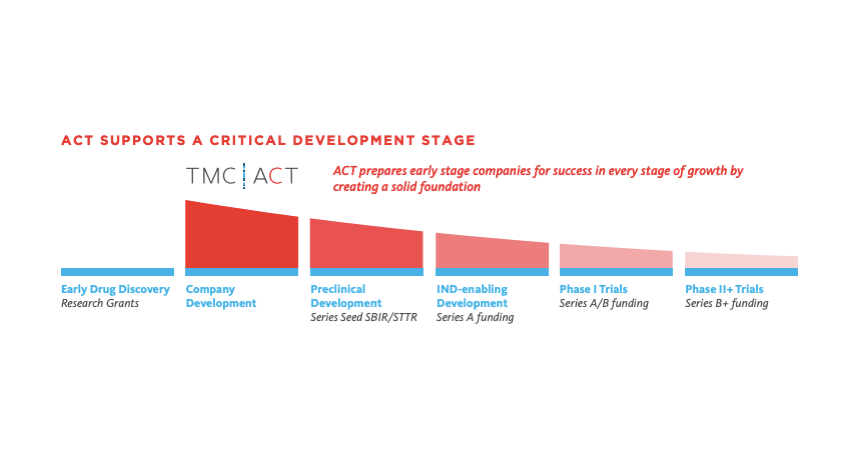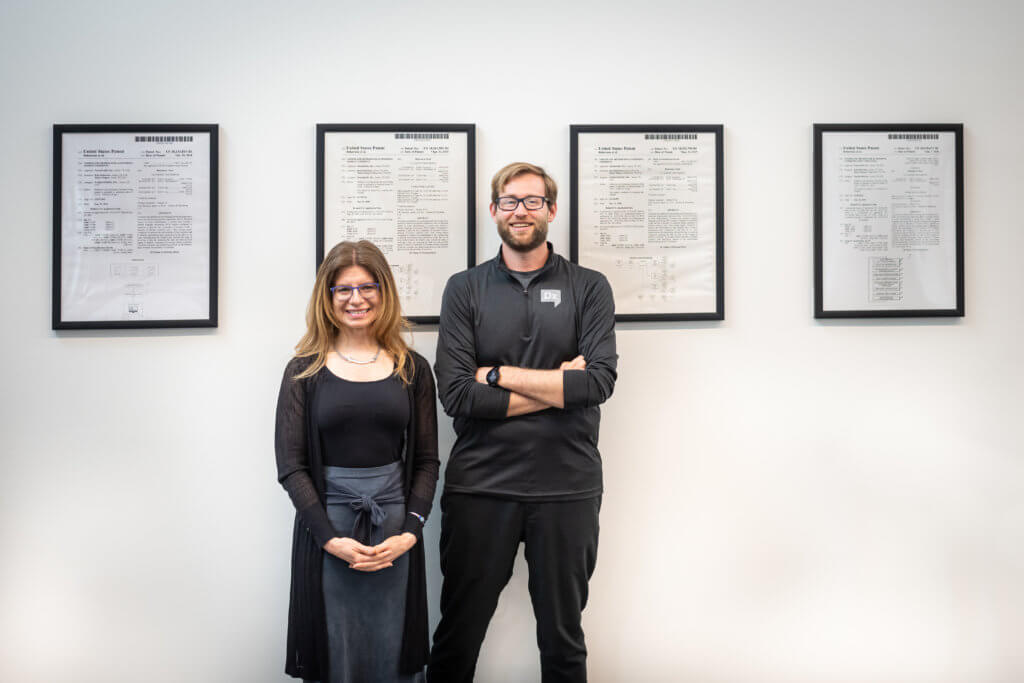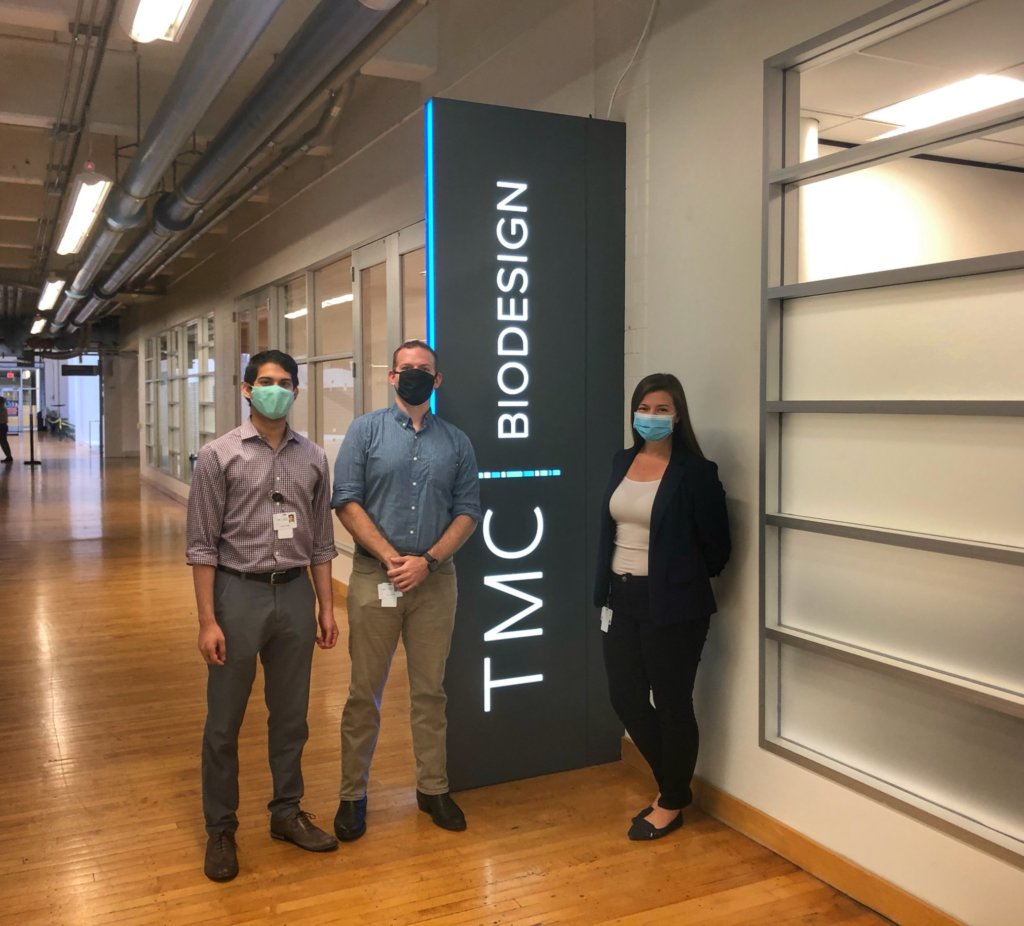A Race Against the Clock

Sathya Elumalai says his mother, who suffers from multiple chronic conditions, is like many other patients: She doesn’t want to keep going back to the doctor to have her vital signs monitored.
While some doctors send patients home with devices to take vital signs, patients often need assistance and the process can take as long as 15 minutes, said Elumalai, CEO of Baltimore-based Multisensor Diagnostics. And most likely, this is just one of many things patients must deal with on a daily basis, so they don’t want another thing to manage, he added.
The frustration Elumalai observed in his mother and other patients inspired him to create MouthLab, a portable, handheld device inserted in the mouth to record key vital signs—temperature, blood oxygen saturation, breathing rate and pattern, pulse rate and blood pressure—in just 30 seconds.
That pressing need to get things done faster has led companies to create diagnostics, laboratory testing and medical devices that perform tasks more quickly and accurately.
Multisensor Diagnostics is among a handful of startups that brought their time-related devices to the Texas Medical Center as part of the TMC Innovation Institute’s recent TMCx medical device accelerator. Other time-related devices included a screening device for stroke and a portable device that provides blood test results in 20 minutes.
Nearly half of all medical care in the United States is performed in emergency departments, according to research. Timeliness is a key issue in treating a multitude of conditions, including stroke, when the flow of oxygen-rich blood to a portion of the brain is blocked.
“Time is everything in stroke, and it is the No. 1 cause of disability,” said Matt Kesinger, CEO of Forest Devices, a Pittsburgh-based startup. “The only way to prevent it is by early treatment, and the only way to ensure early treatment is to get to the right hospital that can treat you.”
Seventy percent of the country does not live near a stroke hospital, Kesinger said, and typically it takes between three or four hours for a stroke patient to get treatment.
But Forest Devices is addressing this problem with AlphaStroke, a portable device used at the point of initial triage to identify stroke patients and get them to the right place in time to receive clot-busting drugs.
AlphaStroke works like a shower cap. It fits around the patient’s head, with wires connected to the device and electrodes attached to the patient’s wrists. The device helps determine whether or not a patient is having a stroke and, if so, where the nearest stroke hospital is so the patient can get care.
Another time-consuming part of health care is waiting for the results of blood tests. Patients wait anywhere from days to weeks.
Orphidia, a San Francisco-based startup, touts itself as an “app store for labs” that aims to redefine the laboratory experience.
Typically, a patient will see a doctor who will order tests. Depending on the doctor’s office, the patient will either have blood drawn to be sent off for analysis, or the patient will have to drive to a separate laboratory testing facility to have the blood drawn. Then the patient must wait for the results.
But Orphidia is developing a portable device that can run 40 common tests from a single drop of blood and provide results in about 20 minutes.
Ryan Kuriakose, PharmD., Orphidia’s vice president of strategy and business development, said he and many other doctors think this device will improve physician work flow because it provides results in real time—during the patient’s visit with the doctor.
Although physicians may finish seeing patients at 3 p.m., he explained, they typically remain in the office for several additional hours to follow up on lab tests and call patients.
“Instead of the long process, you get the results straight away and get a diagnosis,” said Aron Rachamim, Ph.D., founder and CEO of Orphidia.
Multisensor Diagnostics, Forest Devices and Orphidia all graduated from the TMCx accelerator program in November and will continue working to get their devices into hospitals or onto ambulances.
Ultimately, Elumalai was able to get his mother to try MouthLab, and he is helping her use it. He is notified when it is time for her to check her vitals, and he calls to remind her.
“We want to change the culture of health care monitoring,” Elumalai said. “All we ask for is 30 seconds.”

